
A Wrinkle in Time is unlike any Science Fiction novel I have ever read. It is exciting and scientific and even a little romantic like every other science fiction novel, but it grapples with other ideas like how one thing (yet to be revealed) helps to conquer the darkness inside us and all around. It follows Margaret (Meg) Murry in the search for her missing father but at the same time follows a search in understanding herself. She wants more than anything to find her father because he was the one who made her feel like herself and now that he is gone, she feels lost. Her genius younger brother Charles Wallace is a major player in Meg's journey to find herself and in the end is what will trigger the one thing she has that the darkness does not.
I first read this book in third grade as required reading, but since then I have probably read it over ten times. It is one of those books that you get something new out of every time you read it. I have also never read such a creative book. Madeleine L'Engle makes it interesting and unpredictable while at the same time tying in internal struggles. Everyone can relate to Meg and will learn from her struggles by reading this book.
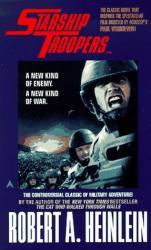
Starship Troopers exemplifies the signature writing style of Heinlein: an outrageous setting that still manages to capture familiar aspects of everyday life. I marveled at the intricate universe Heinlein crafts. He describes every aspect of political relations with alien species and the intricacies of a military that ranges across the stars. The book follows a boy named Juan Rico as he comes of age and joins the infantry. Heinlein describes every aspect of Juan’s life in basic training and the great battles of his career like an ancient epic; sparing no detail and giving elaborate descriptions of the enemies of humanity and the battles in which they were defeated. Starship Troopers is the perfect science fiction novel for someone who is looking for heaps of action combined with drops of philosophy and social commentary, all brought together into one spectacular and dazzling universe.
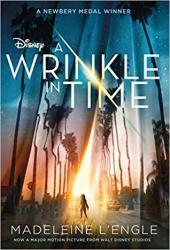
A Wrinkle in Time is an amazing book that brings fantasy mechanics into science, and makes it as real as possible. It starts off with Meg, a brilliant child in a family of brilliant people, who is struggling with grades. She blames it on herself, but she goes on and explains that it's because her father suddenly left, upsetting her natural world. A Wrinkle in Time brings together amazing description techniques, and interesting science mechanics, with quite a bit of humor. Overall, this book is one of my favorites of all time.
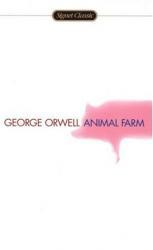
Animal Farm by George Orwell is a chilling tale of animals' uprising against humans to form an idyllic society. Without the rule of humans, animals expect equality, prosperity, and utopia. Over the course of this fable, however, the characters slowly devolve into new forms of oppression, greed, and violence against one another. Each chapter is more suspenseful than the last. The book is not entirely scary, but unsettling more than anything else. Orwell writes characters who are worth caring about, and antagonists that are easy to dislike.
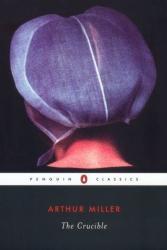
The Crucible is an allusion to the Salem Witch Trails of 1692. The main character, John Proctor, is a well-respected farmer in the small town of Salem, Massachusetts. When the first rumors that there are witches in Salem start stirring, Proctor pays little attention to them: he doesn't particularly believe in witchcraft and believes the townspeople are simply being hysterical. However, when his wife is accused of witchcraft, John has to put aside his personal feelings and find a way to save his wife and friends from hanging.
I hated the ending, but it made the play so much better. John develops significantly as a character. In the beginning, he only cared about protecting his reputation and hiding his affair, but in the final act, John became a martyr for the people of Salem. He's my favorite character in the play, and the movie is just as good!
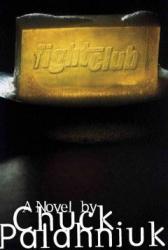
If you like the movie Fight Club, or are just looking for a really good book, this one is awesome. I remember after watching the movie it said that it was based upon this novel. And I had to read it! This story is about a man who's bored with himself and his life. He meets a guy named Tyler Durden, and pretty soon things get out of control. Though there is a "fight club," this story is a lot more than just fighting. And, in my opinion, this book has the best twist ending ever. Chuck Palahniuk is a really good author, and this book is a quick read. Overall, I've read this book multiple times and would highly recommend! I would say that it's not for little kids, as the movie Fight Club is rated R.
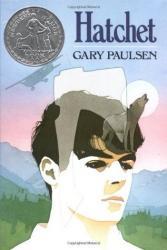
A 13-year-old boy, Brian Robeson, traveled in a small bush plane to visit his dad in Canada. Mid-flight the pilot has trouble breathing and Brian finds himself trying to fly the plane so they don't crash. The plane eventually runs out of fuel and makes a crash landing into a lake. While swimming out of the lake, Brian remembers the hatchet his mother gave him which becomes his one and only survival tool. When Brian realizes he is stranded in the woods, he has to find ways to survive in this new environment. Brian first finds a patch of berries for a source of food. He then sets out to build a shelter for safety and fire for warmth. After facing many challenges Brian and missing warm meals and his bed, Brian must continue to survive by adapting to his situation.
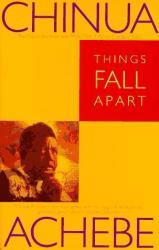
Things Fall Apart is about a Nigerian man, Okonkwo, who watches as his village is destroyed by European missionaries. Once a feared and respected man in his village of Umuofia, Okonkwo is reduced to eventually taking the orders of white men. Okonkwo is a hard and emotionless man who believes that anything that is not masculine is weak and therefore unworthy. When missionaries come to Umuofia, Okonkwo urges his fellow villagers to resist the attempts to diminish their culture and replace their government, but he's met with little support. Eventually, Okonkwo is banned, and when he returns, his village has completely changed.
I liked Things Fall Apart because it's a great book that challenged the idea of African savagery and portrays African culture, specifically Nigerian culture, as complex and intricate, and not the 'uncivilized' society many people view Africans as today. Okonkwo is an interesting character because his unwillingness to adapt to the new change represents an internal struggle many pre-colonized Africans faced in the wake of colonization. The ending is symbolic because it represents the ultimate death of culture as a result of European exploration.
Overall, the novel provides a beautiful insight into another culture often ignored in mainstream media.
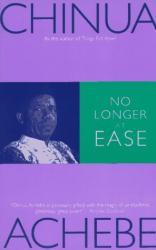
No Longer at Ease is the second installment in the African trilogy series. It is preceded by Things Fall Apart and follows the life of Obi, Okonkwo's grandson. Obi leaves his village in Nigeria to pursue an education in Britain where he meets Clara and falls in love with her. He returns to Nigeria and gets a job in civil service with the help of the board of elders. Obi is conflicted between his African culture and Western lifestyle, and heavy in debt, he takes a bribe.
Just like his grandfather, Obi is strong-minded and stubborn. He intends on marrying Clara although she is an osu, and begins taking bribes when he cannot pay his debts. He questions Nigerian traditions, and often compares Africa to Britain, ultimately positioning him in a place where he finds it nearly impossible to balance both cultures. However stubborn and sometimes reckless Obi is, he's a symbol of generational growth: unlike his grandfather and father, Obi ultimately understood that one culture was not better than the other, and change was imminent. Okonkwo, Nwoye, and Obi symbolize the different industrial stages of Nigeria and the social turmoil that followed, and they show the theme of western versus eastern culture clashes.
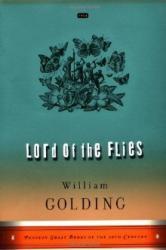
I liked Lord of the Flies for its realism and its detail. The concept of boys stranded on an island was interesting to read, while the realism of the boys’ reactions kept it alive. The detail was fabulous, the interactions well thought out, and the diversity was well done. I loved this book, not just for reading for my writing class, but outside of school as well.
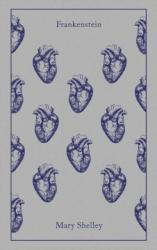
Frankenstein, or, the Modern Prometheus is a great gothic read. Like any other gothic novel, it is dark and mysterious, with elements of horror in it. While it had a rocky start for me, I soon got lost in the characters, with their wants and needs. The detail was amazing, while the wording was, em, very 17th century, but that makes the book no worse. All around, this is a riveting book that will capture your attention immediately.
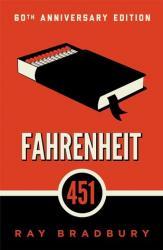
Fahrenheit 451 is a dystopian novel about society if books were
banned. Firemen burn books and one of the firemen is Guy Montag. He's the
main character but eventually he goes against the government and reads books.
His wife Mildred reports the authorities about his possession of books and he
is forced to burn his house, escape the city, and create a new life. After
being on the run from the government, he goes down a river to an unknown area
where he finds other people who read books and he joins their group.
Honestly, I thought it was an amazing book. I love how it puts the importance
of books into perspective and I think everyone should read it. I highly
recommend Fahrenheit 451.
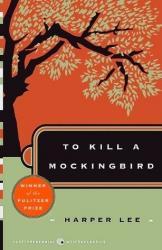
The amount of description in To Kill a Mockingbird by Harper Lee is
amazing. Like, Sherlock Holmes good. The characters are well mapped out, the
interactions felt thought through, and the relationships are believable. I
personally didn’t get all the detail the first read through, just from
enjoying the characters too much. The history is realistic, considering the
time period and how poorly the blacks were treated. All things considered,
this is an engaging read with some actual history.
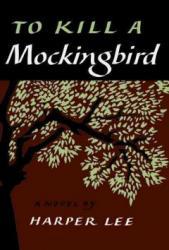
"To Kill a Mockingbird" by Harper Lee creates a creative look on segregation in life in the 1930's. As the story goes along, Scout and her brother Jem experience many changes throughout the summer of 1935. Their father, Atticus Finch, defends a black man after the man was accused of an unsolved crime. The event creates much thought and debate on the subject of segregation. The book has many great turns and the potential of characters was used to a full extent. I highly recommend the read for it will give readers an excellent idea of how life was those many years ago.

Brave New World, written by Aldous Huxley, is a personal interpretation of society’s attitude towards technology. It takes place in a future, either dystopian or utopian, where technology reigns supreme, and humans are created in a lab. It offers commentary on where humanity’s values are placed, and where they should be placed. The characters have to choose whether or not conformity is the best option, and whether numbing the pain is better than understanding the suffering. Written in the 1930s, Huxley has a surprisingly modern style and understanding, and knowing that he was unsure of the future makes it an even more exciting book.
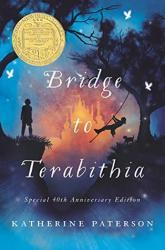
This book is about two unlikely friends who create an imaginary world with many kinds of animals and beasts. Jess Aarons and Leslie Burke become friends when Leslie moves and becomes Jess’s neighbor. But they really get to know each other when Leslie is the only girl to beat Jess in a running race.
One day, Jess and Leslie use a hanging rope to swing over a little river that is nearby, and that’s when they start to rule, as king and queen, the imaginary Terabithia.
There, the two friends have adventures as they try to rule over their subjects, and keep peace and order in Terabithia. Some of these subjects include hairy vultures, squogres, and other spirits, both good and bad. Squogres are massive squirrel-like creatures who are constantly growling, and they wear strange golden helmets with a spike on top, like a Triceratops.
With this book keeping you imaginative, with some sad and happy parts, I'm going to go with 3/5 stars for The Bridge to Terabithia.
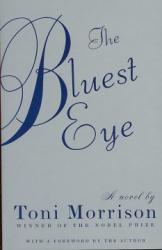
The Bluest Eye is about a young African-American girl named Pecola living in 1940's Ohio. Pecola lives with her brother and abusive parents who constantly tell her she is ugly because of her dark skin and kinky hair. On top of that, the children at her school bully her for the fact that her father is an alcoholic. All her life, Pecola has wanted blue eyes to feel pretty. Her only friends, Freida and Claudia try to defend her against the colorism in their community, but Pecola is unable to embrace her features and becomes obsessive over her desire for blue eyes.
One of the reasons I read this book is because of Morrison's writing style and her thematic elements. The book is very intellectually stimulating and gave me better insight into colorism and how it is still largely prevalent today in the African-American community. I really liked how Morrison used a young girl as a main character to show how these feelings of low-esteem and poor body image are started at a young age, and how the people around us influence our thoughts and feelings.
There are a lot of complex characters and you get to hear each of their stories about why they're the way they are. Claudia is my favorite character because she represents women and girls who challenge our ideas of beauty. The ending was sad, but it really brought light to how damaging our obsession with beauty is.
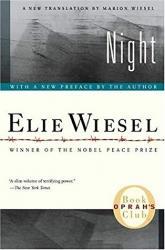
Night by Elie Wiesel is a powerfully graphic novel that tells the story of a Hungarian Jew's experiences in various concentration camps within Nazi Germany during World War II. I really enjoyed this book. It was very well written and hard to put down. This book not only tells of Wiesel's experiences in concentration camps, but provides insight into psychological and philosophical ideas that make it even more interesting. Wiesel was just a teen when he and his family were sent away. He and his father were separated from his mother and sister and underwent an immense amount of trauma that was life altering for both of them. I'd recommend this book to those interested in World War II. The book is a quick and easy read with deep, profound content.

I was required to read The Call of the Wild for my Literature class. The story is about a lovable St. Bernard dog named Buck. At the start of the story, Buck lives in the cushy and comfy house of Judge Miller, but eventually winds up in the wild North of the Yukon. Serving as a sled dog, Buck passes through many owners, good and bad, and learns to answer the Call of the Wild. Overall, it was a pretty good book, but I would only give it Three Star review for these reasons:
1: As it is a classic, the book was written with an older style of English, which can be a little hard to understand. Older English can also take away some of the gravity in pressing situations.
2: There wasn’t quite as much action as I would have liked.
3: I enjoyed the book, but some of the action scenes may have been ruined by the Older English, although the Older English gives the reader a taste of how people communicated in the past. However, the characters, plot, and setting were developed well, so overall, Call of the Wild is a classic, and a quality work of literature, which still can be enjoyed today.
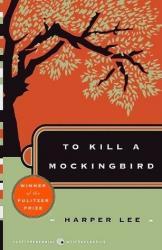
"To Kill a Mockingbird" is an essential piece of literature. It tells a story that highlights the darkness of America's past, through the innocent eyes of a young girl. With this type of narrator, who almost only understands pure truth, joy, and rage, it is possible for readers to feel what she feels, and be brought into her small world (Alabama during the Great Depression) with simple, yet beautiful writing. The story itself is touching, and focuses on themes of family, racism, and solidarity. Aside from its essentiality in explaining America's history, it also can be read as a coming of age story, where the characters begin to see the harsh reality of the world in which they grew up, and in which they created lasting memories and relationships. It will make you laugh, cry, and feel.
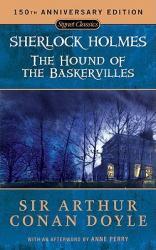
The Hound of the Baskervilles is another outstanding Sherlock Holmes novel. After wealthy landowner Sir Charles Baskerville is found dead, Sherlock Holmes and Dr. Watson must investigate the rumors of an otherworldly hound with glowing eyes and jaw. The Hound of the Baskervilles once again showcases Sherlock Holmes brilliant deductive capabilities and the mental chess-match he plays with villains. However, this novel also shows Dr. Watson's wit and all that he has learned throughout his years with Holmes.
This gripping adventure will keep you on your toes and leave you guessing until the very end. I highly recommend this book for any fan of classic mystery novels.
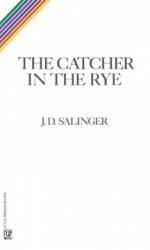
The Catcher In The Rye is about the life of Holden Caulfield and his views on the world as well as life. Holden drops out of a prep school in Pennsylvania to explore New York City. This book captures living in the 1950's and 1960's brilliantly, as well, as the spirit of rebellion that Holden has. I did not like this book because Holden complains way too much and has negative views on the world around him. He also has a bad habit of using profane language in every sentence. The message of the book however is meaningful as it discuses how kids should enjoy being themselves and to stop worrying about growing up and becoming an adult so fast.
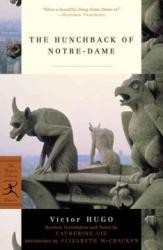
The Hunchback of Notre Dame is about four men who are captivated by a mysterious gypsy dancer. The story begins on a holiday where a play is going on until everyone becomes distracted by the gypsy girl dancing in the square. This is where we meet Esmeralda the gypsy and Gringore the playwright. Many things happen until Esmeralda ends up meeting Pheobus, a soldier, who is very egocentric, when he saves her from the deformed bell ringer - Quasimodo - and a priest named Claude Frollo. Esmeralda is soon accused of witchcraft and is sentenced to be hanged. Fortunately, she is able to find shelter in Notre Dame before that can happen. Many want to kill her, but some want to save her.
I had to read this book for school, and my English teacher recommended it. And the first chapter was not very interesting so I became skeptical, but at the end, I thought the book was really good. There are some parts where the author goes into detail about a location to better help set the scene, and this is where I struggled to focus on the book, but you should push forward because the story line is worth it. The Disney movie did not do this book justice and there is some adult-themed content in the book so I would not recommend this book to middle-schoolers or younger. I do think that sooner or later, everyone should at least give this book a try because it really made me think.
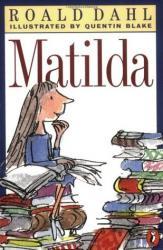
Roald Dahl's Matilda, is a good short read. The concept of a heroine rising to action is decently intriguing. However, the book feels very lackluster with its characters being so one dimensional. While the characters are great for its intended audience, creating some depth to characters can always benefit a novel. Overall, the book is great for younger reader and those looking for a short book that has a lot of fun packed into it.
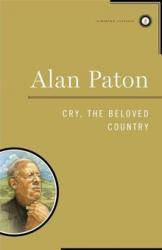
Cry, the Beloved Country is a very good novel. It depicts the lives of Reverend Stephen Kumalo and white landowner, James Jarvis, during a time of turbulence in their lives. All of the characters in the novel are extremely well written and the character development is superb. The conflict in the novel feels very realistic and thrills the reader. The moral decisions and emotions faced by the two protagonists feel very weighty and captivate the reader. Overall, the book is a great novel that I would recommend to anyone.
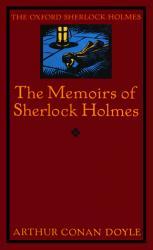
The Memoirs of Sherlock Holmes is a masterpiece of short stories. Sherlock Holmes continues to dazzle readers with his incredible deductions in these eleven short stories. From the beginning of Holmes' career in "The Gloria Scott" to large-scale crimes in "The Naval Treaty," the Memoirs of Sherlock Holmes. The introduction of Sherlock's brother, Mycroft, and his most notorious nemesis, Professor Moriarty, ensure that readers will be captivated by these stories. The Memoirs of Sherlock Holmes is phenomenal and I highly recommend it for any fan of Sherlock Holmes or crime fiction.
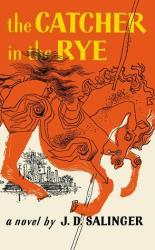
This book is about a boy named Holden's life. Holden has decided to run away from school after he was suspended. He had to figure out life because he didn’t want his parents knowing. I didn’t like this book because I found it wasn’t very interesting. The reason being is it’s not very adventurous and keeps repeating negativity throughout the book.
(Reviewer Grade. 9)
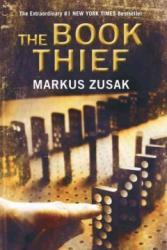
The Book Thief by Markus Zusak is my favorite book of all time. The story follows a young girl named Liesel Meminger growing up in Nazi Germany. Her love of books progresses throughout the plot, and the cast of characters she meets along the way help make the story the loveable masterpiece I know it as (personally, my favorite characters include Max Vandenburg, Rudy Steiner, and Hans Hubermann). This book is historical fiction, but I recommend it for most (if not all) readers. I typically read fantasy books, but I adore The Book Thief. The plot isn’t fast paced like adventure stories, and the events are on the ordinary side, but in my opinion the author does a brilliant job with descriptions and human connections within the book. Another reason I love this book is the use of the narrator--the way colors are described and the story is told is unique and wonderful to read. It’s a story about WWII told in a different perspective than other books we typically read at school, such as Night by Elie Wiesel or The Diary of Anne Frank. Even if you don’t particularly like the historical fiction genre, I would recommend giving this book a try. I first read it in 6th grade, but it is definitely not a story for just children. It is good for any age, and common sense media rates it for kids 13+.
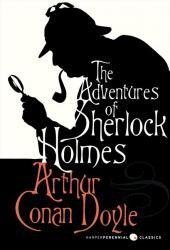
Sherlock Holmes and his assistant Dr. Watson have captivated audiences for generations. This collection of twelve short stories is fantastic. From stolen jewels to mysterious circumstances and brilliant crimes, The Adventures of Sherlock Holmes has it all. The Adventures of Sherlock Holmes is full of mesmerizing deductions and wonderful short adventures. I highly recommend this collection of short stories for every Sherlock Holmes fan and anyone searching for great mystery novels or short stories.
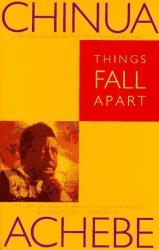
“Things Fall Apart” follows Okonkwo as he becomes a very successful man with many yams, several wives, and political power in Umuofia. The whole first part of the book focuses on his characterizing Okonkwo and showing what tribal culture was like. The author uses subtle references to Europeans to set up the main conflict of the book, European culture. Before the Europeans reach Umofia, Okonkwo accidentally kills a clansmen and is exiled. For the period of his exile, Okonkwo watches from the outside as his own village is changed radically by Christian missionaries.
Overall, I think this book is worth a read for the powerful theme, it wasn’t something I would want to read again because so much of the book was just about life in Umuofia, which was a bit mundane. Onkonkwo was also a pretty static character, there was no character development either. He just wanted to be the opposite of his father, was very strict, harsh, and closeminded. I did like the metaphors and proverbs in the book. I remember a metaphor that stood out in particular was, “Living Fire begets cold,
impotent ash.” I also enjoyed the later portion of the book where the Europeans missionaries arrive and the Onkonkwo provides a different perspective on the situation, and the theme is more clearly defined and developed.